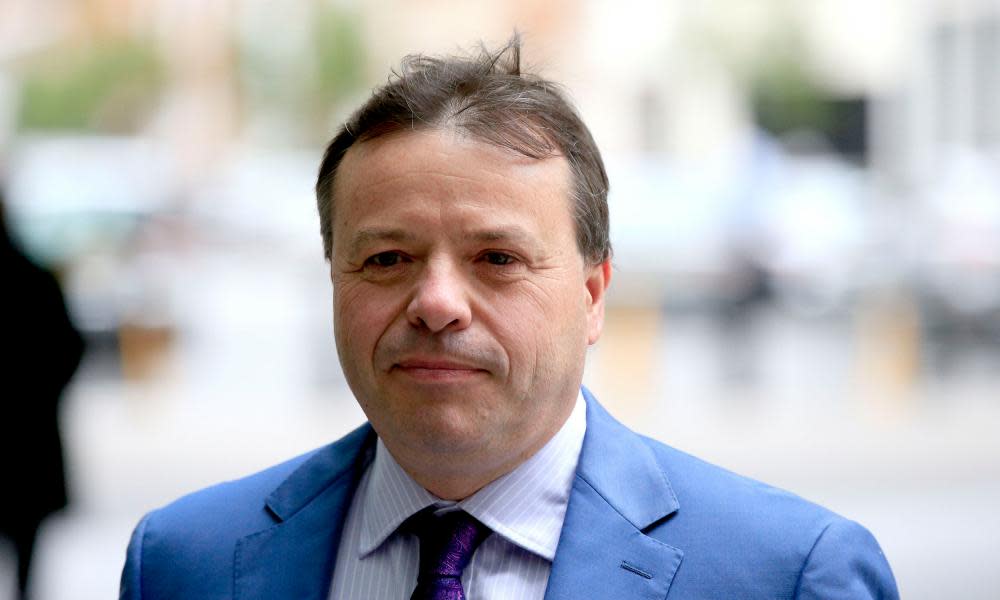MP calls for inquiry into Arron Banks and 'dark money' in EU referendum

A Labour MP has said there are “real questions” about how much Arron Banks – the entrepreneur who bankrolled Brexit – is worth as he called on the government to investigate the possible role played by “dark money” in the EU referendum.
Speaking in parliament, Ben Bradshaw said there was “widespread concern over foreign and particularly Russian interference in western democracies”. He described as “very worrying” a series of investigative reports published this week by the Open Democracy website into the funding of the Leave campaign.
The money given by Banks to Leave.EU in the run-up to the referendum was the biggest donation in British political history. The Bristol-based businessman says he contributed almost £9m in cash, loans and services to pro-Brexit causes. It is impossible to determine what impact – if any – his donations had on the result.
Banks has previously claimed he is worth £100m. An estimate by the Sunday Times puts his fortune at £250m. However, an analysis by Open Democracy suggests the actual figure may be considerably lower.
Bradshaw asked the leader of the Commons, Andrea Leadsom, if she had seen the reports “about the role of dark money in the EU referendum campaign”. They included “revelations of illegal donations” and “new questions today over the real wealth of Arron Banks, the main financial backer of leave”.
Bradshaw urged parliament and the Electoral Commission to examine these claims “very carefully”. Given the Kremlin’s role in influencing elections elsewhere, they should “reassure the country that all the resources spent in the referendum were from permissible sources”, he told MPs.
According to Bradshaw, the “illegal” donation to Brexit was made via the Democratic Unionist party in Northern Ireland. The person behind the £435,000 payment made in 2016 before the referendum remains a mystery. Rules have now been changed to introduce greater transparency, but it is unclear who – or what – lay behind these funds.
The analysis by Open Democracy says that in September 2013 Banks’s financial affairs were in trouble. His underwriting business Southern Rock was under scrutiny from financial regulators in Gibraltar and had reserves below what was required. Banks said he invested £40m in the business to plug any shortfall and resigned as a director.
“A year later, these financial worries seem to have completely evaporated. Banks had begun buying diamond mines, investing millions into chemical companies and wealth management firms, setting up loss-making political consultancies, and most famous of all – funding Ukip,” Open Democracy wrote.
The article adds: “One question remains though. If Banks was in such a tight spot in September 2013, how did he manage to be so generous the following year?”
There are a number of perfectly innocent ways that Banks could have obtained the extra funds, Open Democracy admits. Much of his wealth is held in opaque offshore jurisdictions including Belize, the Isle of Man, the British Virgin Islands and Gibraltar, making an assessment of his fortune difficult.
Banks didn’t immediately comment. His spokesman has previously described his businesses including Southern Rock as profitable and sustainable, and says that Banks “broadly agrees” with the £250m estimate of his fortune.
Replying for the government, Leadsom described Bradshaw’s question as “incredibly important” and said that any specific information concerning wrongdoing should be referred to the Electoral Commission.
“I absolutely share his concern that all donations should be permissible and legal,” she said.

 Yahoo News
Yahoo News 
